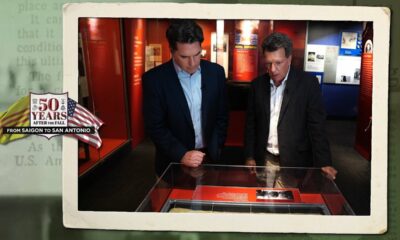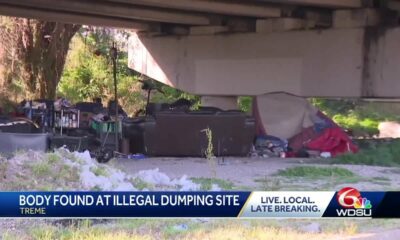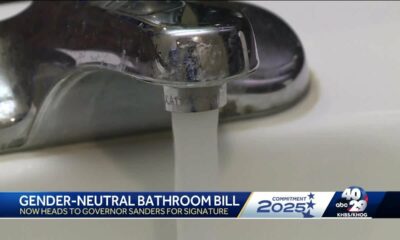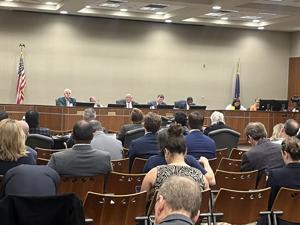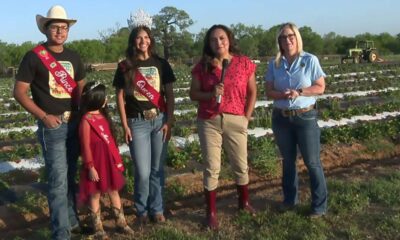(The Center Square) – The Texas oil and gas industry is concerned about the uncertainty surrounding energy production and prices despite President Donald Trump’s vow to “drill, baby, drill.”
After Trump advanced his position on tariffs engaging in trade wars with multiple countries, crude oil prices dropped by more than 20% below the $65-$70 per barrel threshold for operators in the Permian Basin to break even.
After the Trump administration announced a tariff exemption on certain items, the U.S. crude benchmark, West Texas Intermediate, slightly increased to $62.96 as of Wednesday. The international benchmark, Brent Crude, was at $65.85.
After the Trump administration pushed OPEC countries to increase output, eight OPEC+ countries agreed to phase out their voluntary output cuts and increase production by 411,000 barrels per day by May, prompting oil prices to again drop.
Goldman Sachs also reduced its December 2025 oil forecasts, putting WTI at $58 a barrel and Brent at $62 a barrel, projecting a “stagnating” economy as a result.
As the market and U.S. oil and natural gas industry reeled, Energy Secretary Chris Wright told CNBC on Tuesday that the industry has experienced ups and downs before.
“In 2015 and 2016, oil prices twice hit $28 [per barrel], and what happened? What did the U.S. shale industry do in that time? Innovate, get smarter, drive their costs down, and that’s what’s happening right now,” he said. “The industry continues to innovate, continues to get smarter and wiser. Of course, the U.S. shale industry is gonna survive and thrive, but of course investment decisions are going to be tailored if prices stay this low for a long period of time. But I’m quite bullish on the U.S. industry.”
Operators in Texas don’t agree.
Kirk Edwards, president of Odessa-based Latigo Petroleum, said, “The U.S. oil and gas industry is in shock – caught between two extremes.”
“The domestic oil and gas industry is reeling from the whiplash of back-to-back administrations with starkly different energy policies,” he said in an open letter to Wright and Interior Secretary Dough Burgum published on social media. After the Biden administration declared a war on fossil fuels, cancelling leases and expanding regulatory hurdles, “in true form, the industry adapted,” he said. “Despite the headwinds, U.S. producers survived and in many cases, thrived, through ingenuity and grit.”
After Trump was reelected, “the initial mood in the industry was euphoric” because the industry believed the administration was “pro-energy,” he said. “But within the first few months, a different set of challenges emerged. Tariffs have driven up the cost of drilling, squeezing margins just as operators look to expand.”
The Trump administration pushing OPEC to increase production in an already oversupplied global market caused oil prices to plummet. “This sharp price decline has thrown U.S. producers into limbo,” he said. Trump’s motto, “Drill, baby, drill,” turned into “wait, baby, wait,” he said. As a result, the industry isn’t adding rigs to drill when “price signals are so unclear.”
“To say the industry is concerned would be an understatement, shock is a more accurate term. The stakes are high. If we lose talent, technology, and momentum now, we risk undermining years of progress towards true energy security. Hopefully, clearer heads will prevail within the Trump administration. A strong, stable domestic oil and gas sector isn’t just an economic asset, it’s a strategic necessity,” he said.
Trump’s position on tariffs is concerning the industry on many fronts, Ed Longanecker, president of the Texas Independent Producers & Royalty Owners Association (TIPRO), said. TIPRO represents nearly 3,000 individuals and companies from the Texas oil and gas industry.
“TIPRO and our members have long been concerned with tariffs on aluminum and steel that could add additional cost and slowdown exploration and production activity Texas,” Longanecker told The Center Square. “Our members procure this material from both domestic and international suppliers and maintaining the supply diversity is important to control costs and availability. Steel is also in the 8-10 percent range of operating costs for E&P companies, which can vary, and change based on numerous factors, including supply chain disruptions and policy decisions.”
He cited examples. “Oil Country Tubular Goods (OCTG) on critical items, production casing, come from top tier mills for some of our members, 50% domestic and 50% import and may fluctuate as much as 20% either way year to year depending on supply chain issues or other factors, such as the best product available for the environment the tubes will go into (who has the best product for the well conditions).
“OCTG on less critical strings, surface and intermediate casings, can be more import, sometimes 30% domestic and 70% import and much of that import being South Korea. U.S. steelmaking capacity for OCTG is being allocated mainly to producing the more critical and profitable items, such as production casing, and is the biggest reason for the necessity of more import for surface and intermediate pipes.”
As Longanecker and others have advocated for greater pipeline infrastructure to increase production and reduce emissions, the cost for line pipe and other products will also increase as well as “further downward pressure on crude oil prices,” he added. “Tariffs could also impact demand if it contributes to an economic downturn.”
The industry remains hopeful that the Trump administration will “work through these negotiations in an expedited manner with key trading partners,” he said.





